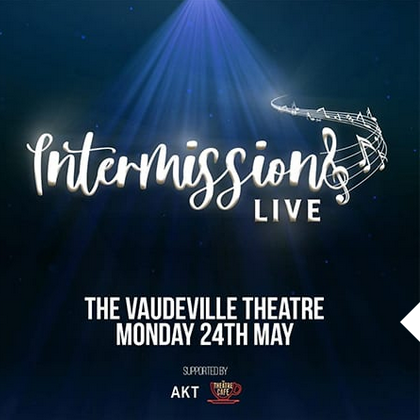And how some have turned crisis into opportunity and new ways of living and working
The last 14 months have been a period of unimaginable loss and unfathomable change, since Covid first started encroaching on our shores and it led to the first of three lockdowns that we are only emerging from now (God willing — and vaccine efficacy — that it will hold this time).
Obviously there’s been the massive losses of life, many of which could have been avoided with faster lockdowns and less dithering from our (so-called) leaders. I can’t wait to hear Dominic Cummings blowing the lid on his former partner-in-crime — in every sense — Boris Johnson tomorrow, when he is scheduled to appear on a joint parliamentary committee investigating what really happened in the run-up to the first and second lockdowns last March and November, as well as the broader pandemic (mis)handling by Johnson and his cabinet lackeys and cronies.
“It will be box office viewing,” as Sky News has already drily characterised the event. As Sky’s report goes on to say,
“For the prime minister’s pre-eminent advisor and a key decision-maker during the first 18 months of this pandemic to break cover and speak publicly before next year’s official inquiry is even under way is extremely unusual.
His unfiltered testimony on the government’s handling of the pandemic is likely to also be extremely difficult for Number 10.”
He knows where all the bodies are (literally) buried, and will, no doubt, be seeking to shift the blame onto others. This could just be the most gripping portrait of political betrayal since those senators stabbed Julius Caesar to death. Et tu, Dom, indeed.
Then there’s also the vast economic cost, both to our country (already battered by the effects of the collective madness of Brexit, though that’s another story — also involving Dom, not so much perignone but whom Boris would no doubt very much wish were gone) and to individuals, especially freelancers who weren’t entitled to any government handouts, yet we’ll all of us be paying the accrued debts down for decades to come. (Meanwhile, close contacts of government ministers, like Matt Hancock’s pub owning buddy from his local village, have hit the jackpot, winning lucrative government contracts to supply PPE and other essential medical equipment that they were previously not exactly experts in).
If the above litany of bad faith and worse (mal)practice is pretty depressing — and especially the prospect that no one is likely to end up being held to account for any of it — then at least we can try to take comfort in some of the positive changes the pandemic has wrought.
I’ve written before how having most of the year off from theatre has given me the opportunity to entirely recalibrate my life and my health — both mental and physical. I’ve had a major round (or three) of spinal surgery; I may not yet be fully mobile again, but at least I’m not in severe pain any more.
And I also freed myself from a depressive cycle that had begun 10 months before the first lockdown and lasted another seven months beyond it; my emotional and spiritual recovery was facilitated by a lengthy investment in the hard work of taking a personal inventory of my life through the help of a 12-step programme that deals with family of origin trauma. It was not easy to do, but being in lockdown with not a lot else to distract me or allow myself to disassociate with from my pain, I finally forced myself to process the long-buried “burden of unexpressed grief” (as the programme puts it), and really feel that I’ve also managed to free myself “from the shame and blame tat are carryovers from the past.”
Hearing Prince Harry talking about his own personal journey since moving to America, I realised he must have worked much the same sort of programme (though in his case he used EMDR therapy).
He told Oprah Winfrey in a new documentary series that of his and his wife Meghan’s decision to move to America and step back from their Royal duties, “We chose to put our mental health first. That’s what we’re doing and that’s what we will continue to do. Isn’t this all about breaking the cycle and isn’t this all about making sure that history doesn’t repeat itself?”
Stigma, he also said, “thrives on silence. So as long as it thrives on silence, the best that we can all do collectively is continue to talk and share stories that are so relatable to so many people around the world.”
I’m really proud of him that he broke his silence, just as I’m delighted to have been able to break mine. Perhaps sharing this honestly here will make a difference to someone, somewhere.
And last night I coincidentally attended a beautiful theatrical homecoming at the Vaudeville Theatre, in which a show called Intermissions — created as an outlet for performers to continue doing their thing during lockdown, in a weekly cabaret and talk show that was staged in the garden of performer Alice Fearn’s home (who also hosted it) and streamed online — finally came indoors to a real live theatre, in front of a real living audience, to bring a kind of happy closure to the event.
As directed by Kirk Jameson with musical director Nick Barstow organising the musicians (and many of the song arrangements), this turned into a surprisingly moving celebration of the importance of theatre — and the resilience of the people who make it.
Performers have been forced to adapt; some have seized the opportunity with massive flair and resourcefulness like Fearn has in gathering friends around to make shows, if not in a barn like Judy and Mickey, then in her own back garden. Others have created or performed in new streamed versions of popular titles, like Lauren Samuels — featured on the bill last night — who performed in a version of Jason Robert Brown’s The Last 5 Years that was entirely filmed via zoom.

Samuels (above centre) was one of a trio of performers who appeared in that title last year, and she was joined by the two more who did it in front of audiences, to perform a version of “I’m Still Hurting” from the show: Emma Kingston (above right), who played her at Cornwall’s outdoor Minack Theatre last summer, in-beween lockdowns; and Molly Lynch (above left), who played Cathy in the revival at Southwark Playhouse that was not once but twice shut down prematurely by lockdowns, first when the original run was cut short in March (I was at the very last performance of that abbreviated run on Monday March 16); then again when its October return was also curtailed by the arrival of the second lockdown later that month. She will reprise it again, on this same Vaudeville stage, from September 17 to October 13.
These multiple opportunities to perform the show again and again may not have been part of the original plan; but COVID has created unusual detours that producers and performers have been forced to navigate; and it has sometimes opened new doors in the process.
For instance, the move to online presentation has created what Emma Kingston last night called a new hybrid form: not quite theatre, not quite a film, but somewhere in-between, blending the theatricality of live performance with the discipline (and fixed viewing points provided by the director) of film. Kingston had also starred during the last lockdown in a marvellous filmed version of the Broadway musical Brooklyn (also directed by Kirk Jameson) that actually made something a lot more substantial out of a flimsy pop musical, at least when I saw both its original Broadway incarnation and a subsequent UK premiere at London’s Greenwich Theatre.
It forced me to reappraise that particular show. More seriously, this pandemic has forced us all to reappraise our lives entirely. As regular readers will know, my husband and I have just relocated ourselves to live in a flint cottage in a village on the South Downs of West Sussex, about ten miles outside of the cathedral city of Chichester and the ocean at Bognor Regis.
We’d barely arrived on our first day, when we met two couples, both older than ourselves, both heterosexual and both unmarried. It already struck me that it was us as the (possibly) only gays in the village who were providing the proper moral example there of not living in sin (as my crazy religious nutjob of a father would say!). There are new lessons to be learnt — and taught — every day.

